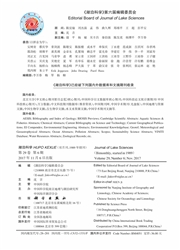

 中文摘要:
中文摘要:
目的初步探讨神经系统药物对胃肠道肿瘤的作用。方法选取硫利达嗪、氯雷他定、东莨菪碱、多巴胺、乙酰胆碱、舒乐安定6种经典的神经系统药物,利用CCK-8法,从0.01、0.1、1、10、100μmol/L不同浓度梯度分别检测其对胃肠道肿瘤体外的活性。并以小鼠脾脏淋巴细胞为模型,研究神经系统药物在体外对免疫细胞的安全性。结果6种经典的神经系统药物中,100μmol/L东莨菪碱、100μmol/L氯雷他定和10μmol/L硫利达嗪对人结肠癌和人胃癌细胞产生毒性(均P〈0.05),并且以硫利达嗪和氯雷他定的组合最为有效。6种神经系统药物仅对肿瘤细胞起到杀伤的作用,而对正常小鼠的脾淋巴细胞无毒性。10μmol/L硫利达嗪联合25μmol/L氯雷他定体外抑制鼠源结肠癌细胞和鼠源胃癌细胞。结论硫利达嗪联合氯雷他定在体外可以有效地提高抗胃肠道肿瘤作用,为进一步联合治疗提供新策略。
 英文摘要:
英文摘要:
Objective To discuss the preliminary effect of nervous system drugs on gastrointestinal tumors.Methods Thioridazine,Loratadine,Scopolamine,Dopamine,Acetylcholine and Estazolamum (0.01,0.1,1,10,100 μmol/L),six classical nervous system drugs were selected to detect the activities of gastrointestinal tumor in vitro by using CCK-8 assay.The spleen cells of mice were also used as the model to study the safety of the nervous system drugs in vitro.Results Among six classical nervous system drugs,cell growth on human colon and gastric cancer clells were suppressed by 100 μmol/L scopolamine,100 μmol/L Loratadine and 10 μmol/L Thioridazine (P〈0.05),especially the combination of Thioridazine and Loratadine.Six drugs only played roles in killing tumors cells,while the spleen lymphocytes of normal mice were non-toxic.The growth of mouse gastrointestinal carcinoma cells in vitro were inhibited by 10 μmol/L thioridazine and 25 μmol/L Loratadine.Conelusion Thioridazine combined with Loratadine is proved to enhance anti-gastrointestinal tumor effects in vitro,and provides a new strategy for forward combination treatment.
 同期刊论文项目
同期刊论文项目
 同项目期刊论文
同项目期刊论文
 期刊信息
期刊信息
